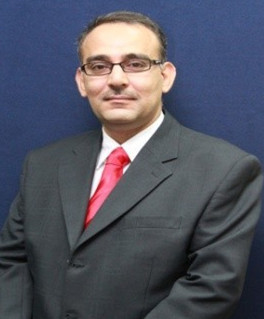Abstract—This paper shows how the total fuel cost generated by the distributed generating units of a microgrid is minimized by the application of unit commitment problem. The microgrid taken for case study consists of a wind power unit, a photovoltaic unit, a microturbine, a diesel generator and a battery bank. The unit commitment problem is solved using priority listing method. The priority is assigned on the basis of emissions released by each unit. The 24 hour forecasted power output of the renewable energy sources is subtracted from the given 24 hour load requirement and is not considered in the unit commitment problem. The fuel cost coefficients and generating constraints of the conventional units and the battery bank specifications are taken as data for solving the unit commitment problem. Minimum up time, minimum down time and startup costs of the conventional units are considered in this case study. Ramp rate constraints and reserve capacity constraints are ignored and shut down cost is taken as zero. Operating costs of the renewable units are taken as zero and the cost of energy delivered during battery discharge is considered as profit. The economic dispatch problem is solved using Quadratic Programming approach. Losses in the system are ignored while solving the economic dispatch problem. From the results obtained we can conclude that even if the unit commitment schedule generated may not be most economic, it still ensures an environment friendly operation by the microgrid.
Index Terms—Microgrid, priority listing, quadratic programming, unit commitment problem.
The authors are with the Electrical Engineering Department, National Institute of Technology Kurukshetra, India (e-mail: vinodmraj1@gmail.com, s_chanana@rediffmail.com).
[PDF]
Cite:Vinod M. Raj and Saurabh Chanana, "Fuel Cost Optimization of an Islanded Microgrid Considering Environmental Impact," Journal of Clean Energy Technologies vol. 4, no. 2, pp. 120-124, 2016.


